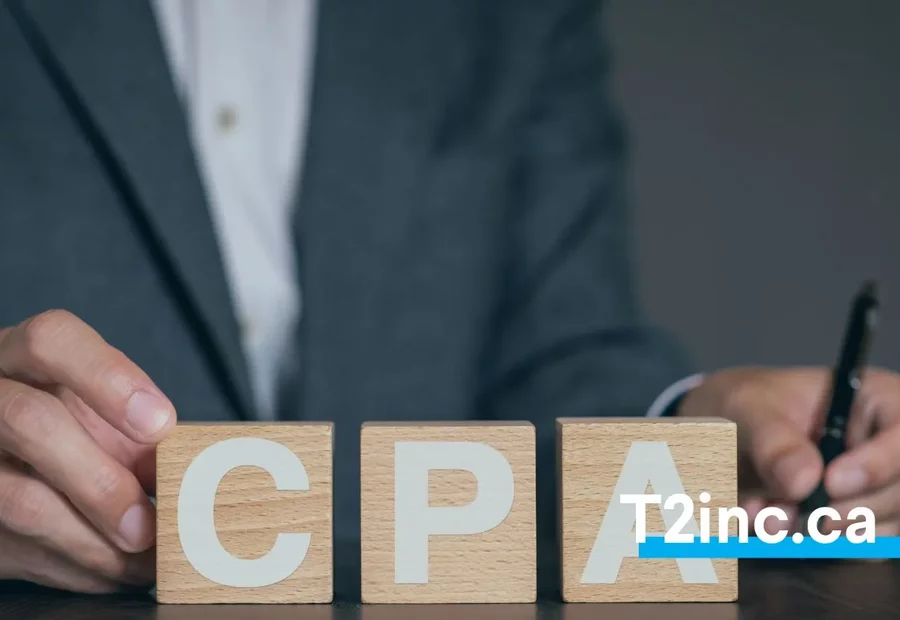Complete Guide to Quebec Corporate Tax Returns

Corporate taxation in Quebec can feel overwhelming. Between corporate tax rates, mandatory T2 and CO-17 filings, and the many available credits and deductions, it’s easy for business owners to feel lost.
In this guide, our corporate tax accountants explain in simple terms how Quebec corporate taxation works, what your main obligations are, and how to reduce your tax bill legally.
Corporate Tax Obligations in Quebec
Any corporation operating in Quebec must meet both federal and provincial tax obligations. Failing to comply can lead to significant penalties and create unnecessary financial risks for your business.
Here are the main requirements explained in simple terms.
Registering Your Business with the Quebec Enterprise Register (REQ]
Any company wishing to conduct business in Quebec must register with the Registre des entreprises. This obligation applies to various legal forms, including corporations, partnerships, and trusts that carry on commercial activities.
For corporations incorporated in Quebec, registration is automatic upon filing of the articles of incorporation. Although registration fees are usually charged, there are some exceptions, notably for companies incorporated in Ontario, which may be exempt from these fees.
Before doing business in Quebec, your company must be officially registered with the Registraire des entreprises du Québec (REQ). This step:
- Gives your corporation legal recognition,
- Provides you with a Quebec Enterprise Number (NEQ),
- Grants access to tax programs and provincial credits available to registered businesses.
If your company is incorporated in Quebec, this registration happens automatically when you file your articles of incorporation. If your company was incorporated elsewhere in Canada (for example, Ontario or federally) but operates in Quebec, you must still file a registration with the REQ.
Without this, your company cannot legally issue invoices or file its corporate tax returns.
Filing Annual Corporate Tax Returns (T2 and CO-17)
Every year, corporations must file two separate tax returns in Quebec:
- A T2 return with the Canada Revenue Agency (CRA) for federal corporate tax,
- A CO-17 return with Revenu Québec for provincial corporate tax.
These returns are due within six months of your fiscal year-end, but the taxes owed are usually payable much sooner, typically within two or three months. That’s why cash flow planning is so important. Even if your company is inactive, you are still required to file what’s known as a “nil return.” Missing a filing can result in penalties and interest, even if your business earned no income.
Both the T2 and CO-17 include multiple schedules (for dividends, deductions, credits, etc.). Errors or omissions often trigger a notice of assessment and extra costs.
At T2inc.ca, we handle the preparation and electronic filing of both T2 and CO-17 returns, ensuring your corporation remains compliant without delays or surprises.
Registering and Charging Sales Taxes (GST and QST)
If your company earns more than $30,000 in taxable revenues annually, you must register for the Goods and Services Tax (GST) and the Quebec Sales Tax (QST).
- Once registered, you are responsible for:
- Charging GST and QST on your taxable sales,
- Collecting these amounts from customers,
- Remitting them to Revenu Québec on a monthly, quarterly, or annual basis, depending on your filing frequency.
Even if your business has not yet reached the $30,000 threshold, voluntary registration can be worthwhile, since it allows you to recover GST/QST paid on your expenses through input tax credits.
Failing to register or remit collected taxes exposes you to penalties and personal liability for unpaid amounts.
Managing Payroll Source Deductions
If you employ staff, your corporation must withhold and remit a variety of deductions on every pay cycle, including:
- Federal and provincial income tax,
- Quebec Pension Plan (QPP) contributions,
- Employment Insurance (EI) premiums,
- Quebec Health Services Fund (HSF) contributions,
- Other contributions where applicable (e.g., training or labour standards).
These amounts must be remitted to both the Canada Revenue Agency and Revenu Québec, often monthly.
If payroll deductions are not collected or remitted on time, corporate directors can be held personally liable for the unpaid amounts, with penalties and interest added.
Paying Corporate Income Tax and Other Amounts
Beyond filing, your company must also ensure that all amounts owed are paid on time, including:
- Federal and provincial corporate income taxes (T2 and CO-17),
- Sales taxes collected (GST/QST),
- Payroll deductions withheld from employees.
Generally, the balance of corporate income tax must be paid within two months of your fiscal year-end. Some Canadian-controlled private corporations (CCPCs) that meet certain conditions may have up to three months. Sales taxes and payroll deductions must also be remitted on a periodic basis—monthly, quarterly, or annually, depending on your business profile.
What Are the Corporate Tax Rates in Quebec?
In Quebec, corporations pay both federal and provincial income tax. Together, these form a combined corporate tax rate of 26.5% (15% federal + 11.5% provincial).
Unlike personal income tax, which is progressive, corporate tax rates are fixed. This means your company pays the same percentage on taxable income, making business taxation more predictable and easier to plan for. If you would like to learn more about this topic, check out our article on tax rates in Quebec.
The Reduced Rate for Small Businesses in Québec
Canadian small businesses that meet certain criteria benefit from a lower tax rate on the first $500,000 of taxable income. In Quebec, this brings the combined rate down to about 20.5%.
This reduction comes from two programs:
- Small Business Deduction (SBD) at the federal level,
- The Deduction for Small Businesses (DPE) in Quebec.
The goal is to encourage growth, reinvestment, and job creation among small and medium-sized corporations.
The General Rate for Larger Corporations
Once taxable income exceeds the $500,000 threshold, the excess amount is taxed at the regular 26.5% combined rate.
This distinction ensures that small and medium-sized businesses benefit from targeted relief, while larger corporations are taxed at the standard rate.
For a detailed breakdown and calculation examples, see our article on how to calculate your corporate tax rate in Quebec.

Types of Taxable Income for Corporations in Quebec
In Quebec, not all corporate income is taxed the same way. The applicable rate depends on the type of income your business reports. Here are the main categories you should know.
Active business income
This is the most common situation for corporations—revenues from selling products, providing services, or completing contracts.
Active business income generally qualifies for the reduced small business tax rate of about 20.5% (9% federal + 11.5% Quebec), provided the corporation meets the criteria for the small business deduction.
Investment Income
Investment income includes interest, rental income, royalties, and a portion of capital gains.
In 2023, this type of income was taxed at about 38% federally plus 11.5% provincially, for a combined rate close to 50%. The reason is simple: to discourage corporations from being used solely as passive investment vehicles rather than for active business operations.
Dividend Income
Special rules apply when a corporation earns dividends:
- Dividends from a non-connected corporation are subject to Part IV tax, which is added to the corporation’s Refundable Dividend Tax on Hand (RDTOH) account.
- When the corporation later pays taxable dividends to its own shareholders, it may recover some of this tax through the Dividend Refund (DR) mechanism.
Put simply, this system works like an interest-free loan to the government that is refunded when the corporation distributes dividends to its shareholders.
Capital Gains
When a corporation sells an asset (such as real estate, investments, or equipment) for more than its purchase price, the profit is considered a capital gain. Only 50% of the gain is taxable. The other 50% goes into the Capital Dividend Account (CDA), which allows the corporation to pay tax-free capital dividends to shareholders.
This makes capital gains an important planning tool for both corporate tax efficiency and shareholder compensation.
How to Legally Reduce Your Corporate Tax in Quebec
Lowering your company’s tax bill isn’t about “loopholes” or risky strategies. There are well-established, legal methods that allow you to pay the right amount of tax while taking full advantage of the incentives provided by the government.
Here are the main levers of tax planning available to Quebec corporations.
Make Use of Tax Credits and Deductions
Both the federal government and Revenu Québec offer a wide range of corporate tax credits and deductions designed to encourage innovation, investment, and job creation.
Some common examples include:
- Refundable tax credits: such as the SR&ED program (Scientific Research and Experimental Development) or the Investment and Innovation Tax Credit (CII). These can not only reduce your taxes but may also provide a cash refund if the credit exceeds the tax owed.
- Non-refundable tax credits: such as the dividend tax credit or the credit for purchasing electric vehicles, which reduce the amount of tax payable.
- Tax deductions: including capital cost allowance (CCA), employee training costs, or the 5,500-hour threshold that allows certain small businesses to qualify for the reduced tax rate.
When applied correctly, these measures can save your corporation thousands of dollars every year.
Plan Shareholder and Executive Compensation
How owners and directors are paid has a direct impact not only on the company’s tax liability but also on their personal taxes as shareholders. Proper planning can reduce the overall tax burden.
- Salary: Considered a deductible expense for the company, lowering taxable income. It also provides personal benefits like RRQ contributions, potential Employment Insurance coverage, and RRSP contribution room. However, it is fully taxable for the individual.
- Dividends: Generally less expensive for the company because there are no payroll contributions (RRQ, EI, HSF). On the other hand, dividends are taxable for the shareholder, but the integration system accounts for corporate taxes already paid.
In practice, the best approach is often a balanced mix of salary and dividends, depending on factors such as the owner’s age, cash flow needs, retirement planning, and RRSP eligibility.
At T2inc.ca, we can guide you through a salary vs. dividend consultation to help you choose the most tax-efficient option for your situation.
Manage Tax Losses and Capital Cost Allowance
Business losses and investments aren’t always bad news. If managed correctly, they can become powerful tax planning tools.
- Tax losses: If your company reports a loss, it can be applied against past income (carry-back) or future income (carry-forward). This helps recover previously paid taxes or reduce future tax bills.
- Capital cost allowance (CCA): Assets like buildings, equipment, and vehicles can be depreciated over several years. Instead of deducting the full cost at once, you spread it over time, reducing taxable income year after year.
Handled properly, these strategies smooth out tax obligations and help stabilize your company’s cash flow.

FAQ on Quebec Corporate Tax Returns
💬What documents are required for a T2 and CO-17 filing?
To file a corporate tax return, you’ll need at least your annual financial statements (balance sheet and income statement), bank statements, and receipts for business expenses and revenues. If your company claims tax credits or deductions, you’ll also need supporting documents such as contracts, invoices, or government attestations. If you have employees, payroll records are also required.
💬When are Quebec corporate tax returns due?
The T2 federal return (Canada Revenue Agency) and the CO-17 provincial return (Revenu Québec) must be filed within six months of your corporation’s fiscal year-end. Unlike personal tax returns, the deadline is not fixed to December 31—it depends on your company’s year-end date.
💬Does an inactive corporation still need to file?
Yes. Even if your company had no activity or revenue during the year, you must still file a T2 return federally and a CO-17 return provincially. This is called a nil return.
Failing to file can result in penalties and interest, even if no tax is payable.
💬What are the deadlines for paying corporate taxes?
Tax payments are often due earlier than the filing deadline. Generally, corporate taxes must be paid within two months of the fiscal year-end. Some Canadian-controlled private corporations (CCPCs) that meet specific conditions may have up to three months. In addition, monthly or quarterly installment payments may be required if your corporation owes more than a certain amount of tax.
💬What are the most common mistakes to avoid?
Some of the most frequent errors in Quebec corporate tax filing include forgetting to report certain revenues, treating personal expenses as if they were business expenses, failing to file a return for an inactive corporation, or misapplying tax credits and deductions. Each of these mistakes can result in penalties, interest charges, and reassessments by tax authorities, which ultimately increase the cost and complexity of managing your corporate taxes.
Our Guide to Quebec Corporate Tax Returns: Trust T2inc.ca
Corporate taxation in Quebec can quickly become complex: T2 tax returns and CO-17 tax returns, strict deadlines, credits and deductions to optimize… all of which require accuracy and expertise.
With T2inc.ca, you benefit from a 100% online, fast, and secure service designed specifically for incorporated small and medium-sized businesses. Our tax specialists support you in filing your corporate tax returns with full compliance, while helping you maximize savings and avoid costly mistakes.
Whether your company is active or inactive, filing remains mandatory every year. Entrust this responsibility to T2inc.ca and focus on what truly matters: growing your business.
Contact our experts
Have a question? Need help? Fill out our online form to get help from our experts.
Contact usNeed more help?
Contact us by filling out our form
Are you interested in our services, but would like more information before taking the plunge? Contact us today and one of our tax accountants will be in touch to help you.
At T2inc.ca, we're committed to helping business owners manage their company's tax affairs so they can grow their business.




